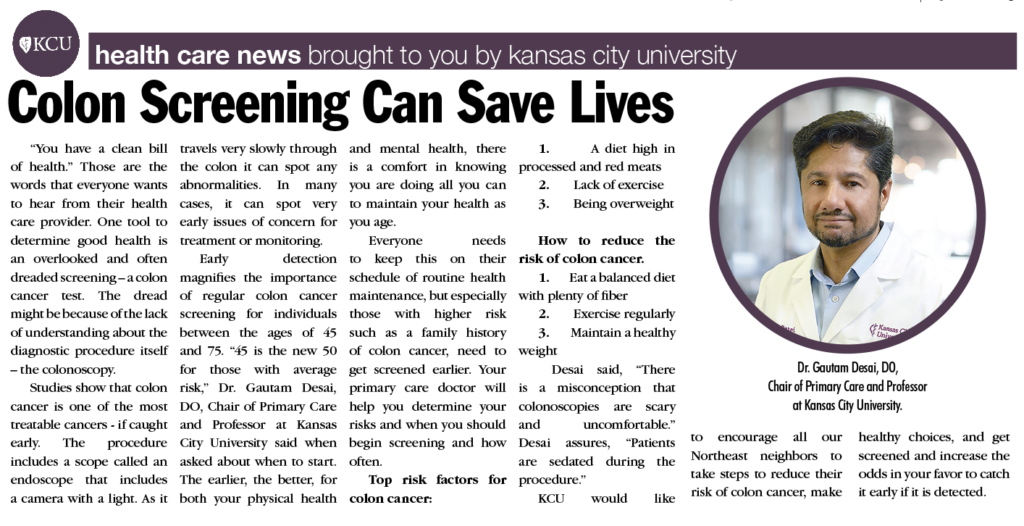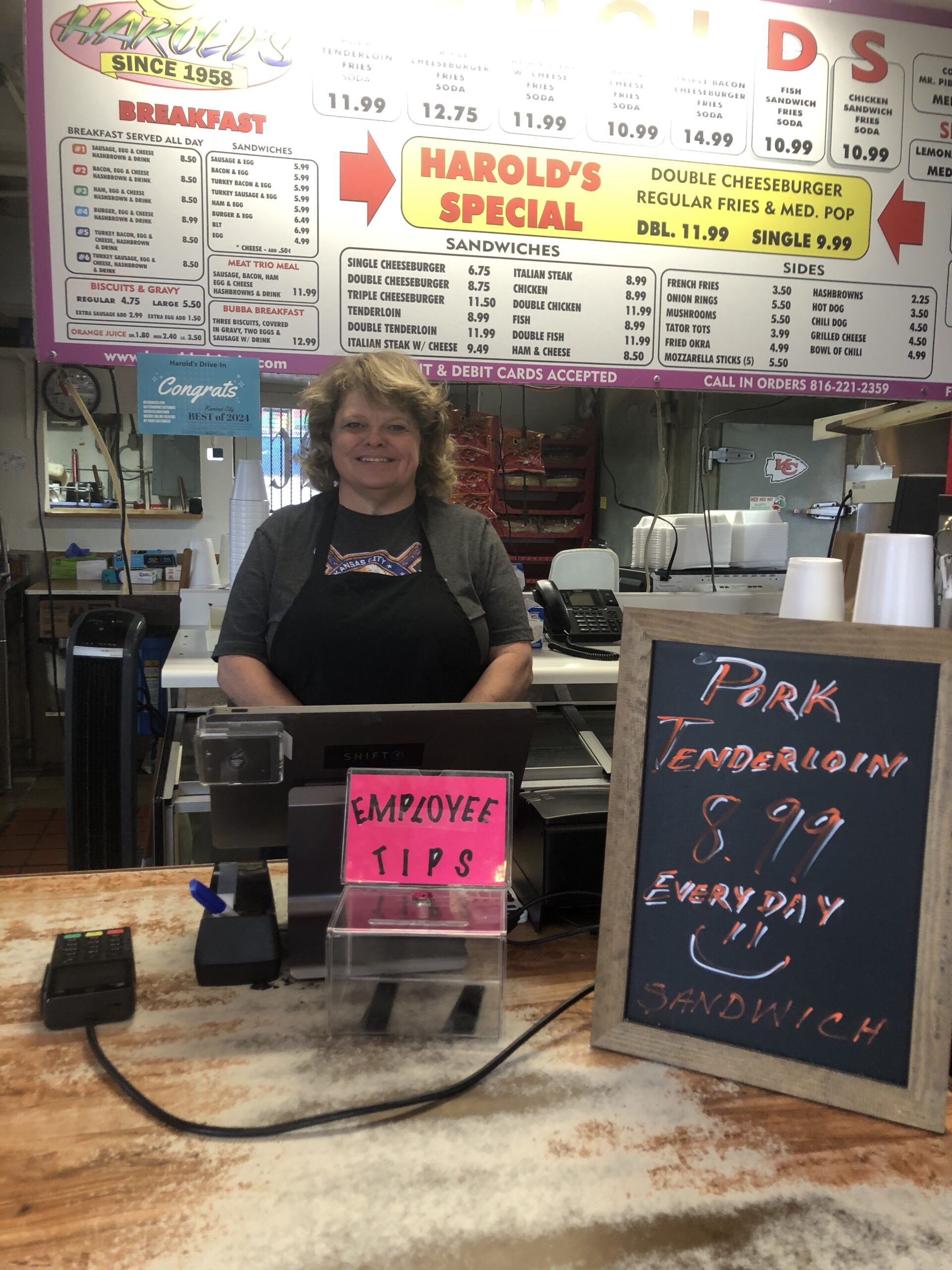
Sponsored Content
“You have a clean bill of health.” Those are the words that everyone wants to hear from their health care provider. One tool to determine good health is an overlooked and often dreaded screening – a colon cancer test. The dread might be because of the lack of understanding about the diagnostic procedure itself – the colonoscopy.
Studies show that colon cancer is one of the most treatable cancers – if caught early. The procedure includes a scope called an endoscope that includes a camera with a light. As it travels very slowly through the colon it can spot any abnormalities. In many cases, it can spot very early issues of concern for treatment or monitoring.
Early detection magnifies the importance of regular colon cancer screening for individuals between the ages of 45 and 75. “45 is the new 50 for those with average risk,” Dr. Gautam Desai, DO, Chair of Primary Care and Professor at Kansas City University said when asked about when to start. The earlier, the better, for both your physical health and mental health, there is a comfort in knowing you are doing all you can to maintain your health as you age.
Everyone needs to keep this on their schedule of routine health maintenance, but especially those with higher risk such as a family history of colon cancer, need to get screened earlier. Your primary care doctor will help you determine your risks and when you should begin screening and how often.
Top risk factors for colon cancer:
1. A diet high in processed and red meats
2. Lack of exercise
3. Being overweight
How to reduce the risk of colon cancer.
1. Eat a balanced diet with plenty of fiber
2. Exercise regularly
3. Maintain a healthy weight
Desai said, “There is a misconception that colonoscopies are scary and uncomfortable.” Desai assures, “Patients are sedated during the procedure.”
KCU would like to encourage all our Northeast neighbors to take steps to reduce their risk of colon cancer, make healthy choices, and get screened and increase the odds in your favor to catch it early if it is detected.

















